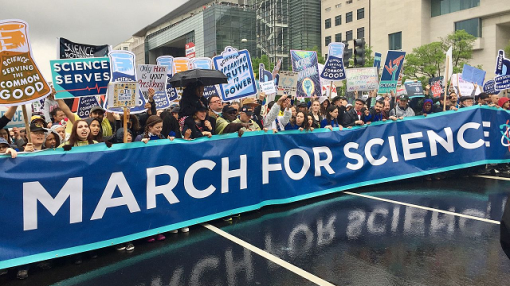
Despite a lot of rather uninformed people out there who might view scientists as just flesh-covered automatons lacking the customary set of feelings, we are in fact normal human beings embedded in the same society as everyone else. We own houses, drive cars, have sex, have children, eat out in restaurants, drink, dance, vote, pay taxes and utilities, do sport, take vacations, see the doctor, laugh, cry, love, and all the rest of it.
As such, we have just as much stake in society as everyone else, and we are very much at the mercy of government policies, cultural norms, and other limitations that everyday life presents us. If we happen to discover through our research some aspect of our society that can be approved, does it suffice merely to publish the material within the academic literature and nebulously ‘hope’ someone else does some good with it?
It is a short, metaphysical step to entertain the idea of advocating for change more proactively than a random Tweet or a newspaper interview might imply. I appreciate that the ‘a’ word strikes fear and derision in the hearts of many scientists, for I too was once under the impression that it was not my job to advocate for anything beyond good scientific practice. Indeed, I practically insisted that my role was uniquely to develop the tools, collect the data, design the experiments, and elaborate the intricacies and complexities of the results to test hypotheses. No more. No less.
Even the thought of mimicking those placard-holding street protestors (my rather naïve impression of what an advocate looked like) used to revile me, for I had formed the (incorrect) opinion that any scientist who took up the protestor’s mantle had clearly abandoned her claim to be an intellectual.
In my view, once one crossed that intangible line into advocacy, the objectivity of all previous intellectual pursuits was immediately compromised, if not abandoned entirely. For me then, ‘advocacy’ equalled ‘subjectivity’, and that was not consistent with what I understood science to be.
I have since done a 180-degree turn on that innocent and narrow-minded perspective. First, I have since come to realise that true objectivity is beyond the reach of any human being, and that science can only provide the tools to reduce our innate subjectivity. As human beings, even scientists have all of our species’ weaknesses and limitations of perception, but science allows us to get as close to objectivity as is humanly possible. So, science is not the pursuit of objectivity per se; rather, it is the pursuit of subjectivity reduction. Errare humanum est. Read the rest of this entry »


